CEO of EXIT Realty Corp. International
Tami Bonnell
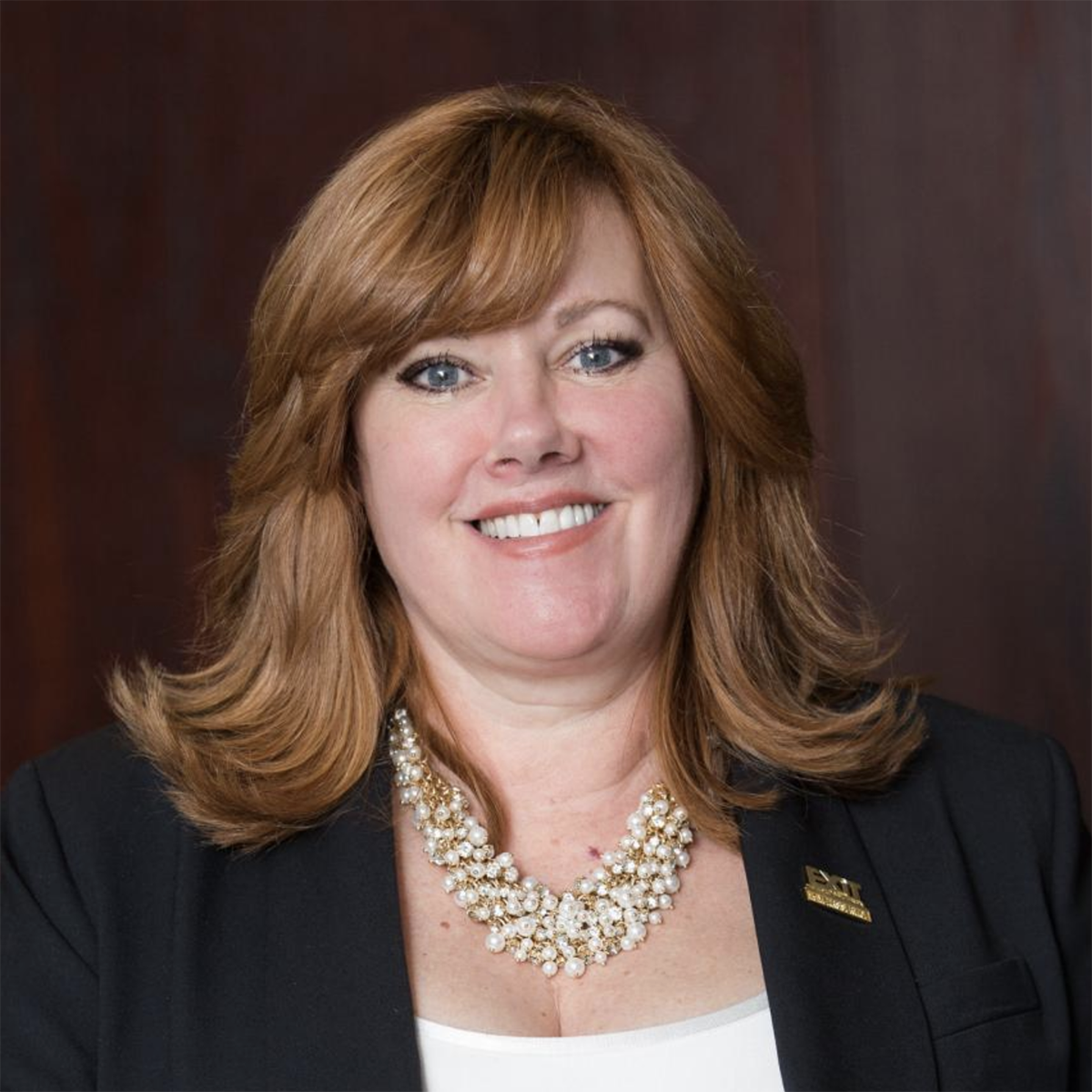
Tami Bonnell is the embodiment of leading by example. Always recognizing the value in people and staying true to her word, she has crafted a 30-year career and made it her mission to help as many people succeed as possible. In this conversation with NAWRB, Bonnell relates corporate leadership lessons alongside parenting tips and provides a look at the life of one of the most important women in real estate.
![]()
NAWRB: Who has inspired you most throughout your life?
Tami Bonnell: The first person is my mother. She died very young, in her forties. I’m one of six kids and the number one thing that she said to all of us is, “Never say, ‘I wish I had.’” You get to a certain point in your life, and if you haven’t experienced things that you really wanted to that are on your bucket list, you may reach a point when you can’t. My dad always said, “Your standard is the lowest level you’re willing to accept.” I always thought that was such a smart line because if you didn’t give your best today, whatever you gave the worst of was your best. That’s the reflection of you. Anytime he said it I’d go in and inspire people.
It’s so obvious, professionally and personally, that your standard is the lowest level you’re willing to accept. Even if nobody else knows when you phoned it in, you know. That was a good push.
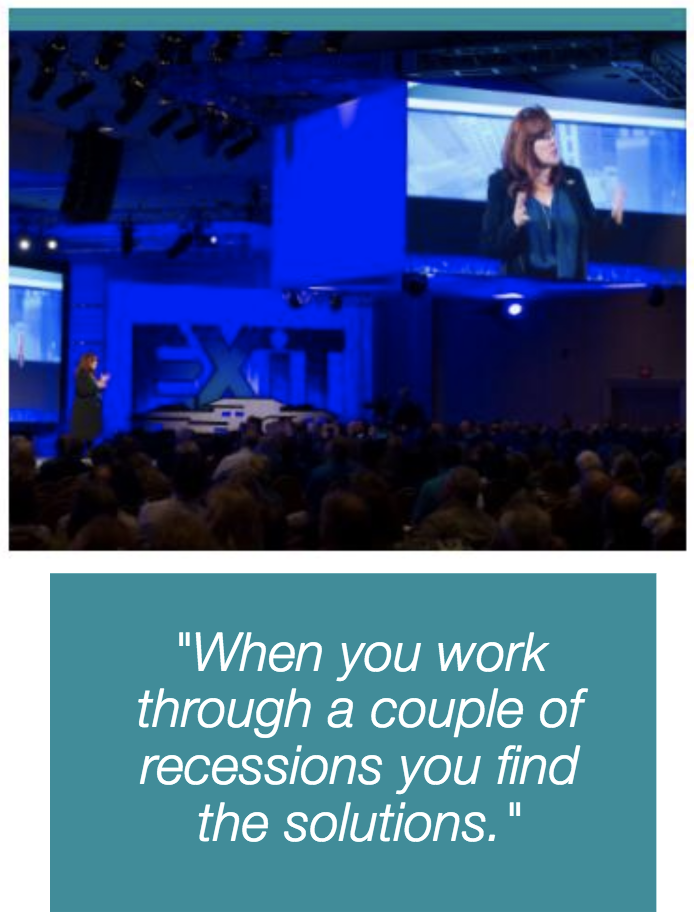 My grandmother, my father’s mother, was an entrepreneur. She was forced into it because she became a widow at a very young age. She owned a construction company and I started working for her answering phones when I was eight. She was in a wheelchair most of her life and would always say, “Even if the only thing you can do for yourself is make a cup of tea, make your own damn tea.” Basically, do whatever it is you can do for yourself, don’t depend on other people and don’t expect it from other people. I think that is awesome advice.
My grandmother, my father’s mother, was an entrepreneur. She was forced into it because she became a widow at a very young age. She owned a construction company and I started working for her answering phones when I was eight. She was in a wheelchair most of her life and would always say, “Even if the only thing you can do for yourself is make a cup of tea, make your own damn tea.” Basically, do whatever it is you can do for yourself, don’t depend on other people and don’t expect it from other people. I think that is awesome advice.
Steve Morris, the Founder and Chairman of EXIT Realty, pushes you to get out of your comfort zone more than anyone I’ve ever been around. There isn’t any, “Why not?” It’s always, “How do you know unless you try it? The four-minute mile wasn’t accomplished until somebody said, ‘What if I did?’” He always pushes everybody that’s around him to get more and better out of them. He deals with the entire person and is very curious about helping other people and pushing you. I’ve watched him do it with people who I didn’t think would go anywhere, and they’ve really grown much further than they probably ever thought they could.
With this company, selling the rights to regions across the country, I broke four world records. I didn’t do it to break the records, I listened to what Steve had to say and so much of it was centered on the idea that you don’t know unless you try it. It goes back to the same thing my dad used to say about standards. If you look at the average real estate office, if there’s anybody in there who’s not a producer, it justifies everyone else not producing. They sit around and think, “Well, they aren’t doing anything either so I won’t do anything,” and pretty soon the day is gone. Steve really pushed for surrounding yourself with people who want to be better and people that want to do better.
You know you feel the best about yourself when you do something you didn’t know you could, so why wouldn’t we just keep trying to do that?
I broke records from 2001 to 2007. In one year I sold out 50 percent of the regional rights by population in the entire United States. It was absolutely crazy, but it was really about going out and having the conversation to find out what’s really important to people and what makes sense for them. That’s it more than anything else. I think that everybody has an unbelievable capacity, it’s just so much about how we start our day and how we live our day. There are a lot of people who start the day by going on their email and then half the day’s gone; then they go on Facebook and Amazon and don’t understand how the day disappeared.
These things are not good ways to start your day because they consume too much of your time. I think people get hooked on it and it’s a shame. That’s not your real life, your real life is the life that you’re living, but so many people are living vicariously through the image that they put out there. It has value, but the whole thing is, “Is it controlling you or are you controlling it?”
NAWRB: What do you think could have best prepared you for the role of CEO early on in your career?
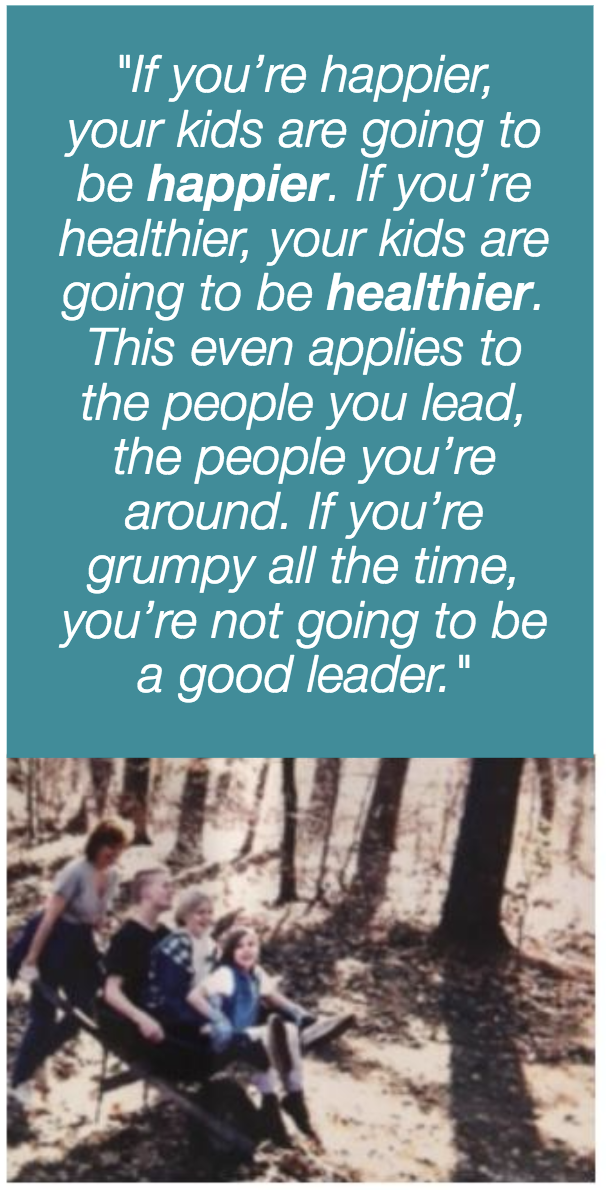 Tami Bonnell: Two things. Number one, I’ve been in sales most of my life. You really start to get to know people as you get good at sales, but what you’re really getting good at is knowing people because they buy you first. It’s definitely getting to know people.
Tami Bonnell: Two things. Number one, I’ve been in sales most of my life. You really start to get to know people as you get good at sales, but what you’re really getting good at is knowing people because they buy you first. It’s definitely getting to know people.
Number two is adversity. When you work through a couple of recessions you find the solutions. It’s not the easy things that prepare you for it; it’s the tough things so that you don’t flinch when things aren’t going right. You keep looking for a solution and you don’t panic, you stay in control. A lot of it is staying calm when nobody else is.
It’s also about prioritizing people. I’ve seen how you are with your staff, especially with your interns. You can tell you really love them and want to push them to get more out of themselves; you can see that, and you can either feel that or not. Every single person that’s in front of you wants to matter.
NAWRB: What excited you most about being a NAWRB Diversity and Inclusion Leadership Council Member?
Tami Bonnell: You and I have had the same beliefs for a long time about wanting to empower women and make a difference. I think it’s all about exposure. So many people don’t even know what their options are. They don’t know that things can be different because they haven’t been exposed to anything else.
This Council is great exposure for us to be able to get out in front of a tremendous amount of women and really show them that they have a lot more choices that they thought.
That’s one thing I do like about social media, you have a voice because you’re doing things publicly. The voice should be heard, it’s so important.
I can’t tell you the number of people I get the opportunity to meet who just don’t know; no one in their family has ever owned a home or done anything besides worked by the hour. That’s all they know.
NAWRB: Congratulations on being 66 on the overall Swanepoel Power 200 list which ranks the most powerful leaders in the residential real estate brokerage industry. How do you make time to smell the roses as one of the most influential leaders in real estate?
Tami Bonnell: First of all, thank you. Here’s the best thing that I can tell you. As a parent, you want to make sure that you prioritize the lives of your children, but you’ve got to still grow. I always said that if I was going to have to work anyway, I might as well make it something good.
In our family, Sunday was always family night. I would always ask them what they wanted to do that week and I would never promise a time to do it, I would just keep the commitment. Maegan might want to go to the library, Shane may want to go shooting, and William might want to lift weights. It didn’t matter what they wanted to do, I made sure that they knew they were a priority. If you say you’ll do it Tuesday at 3 o’clock, well, something might happen Tuesday at 3 o’clock. I would just say that we would do it that week and I never broke a promise.
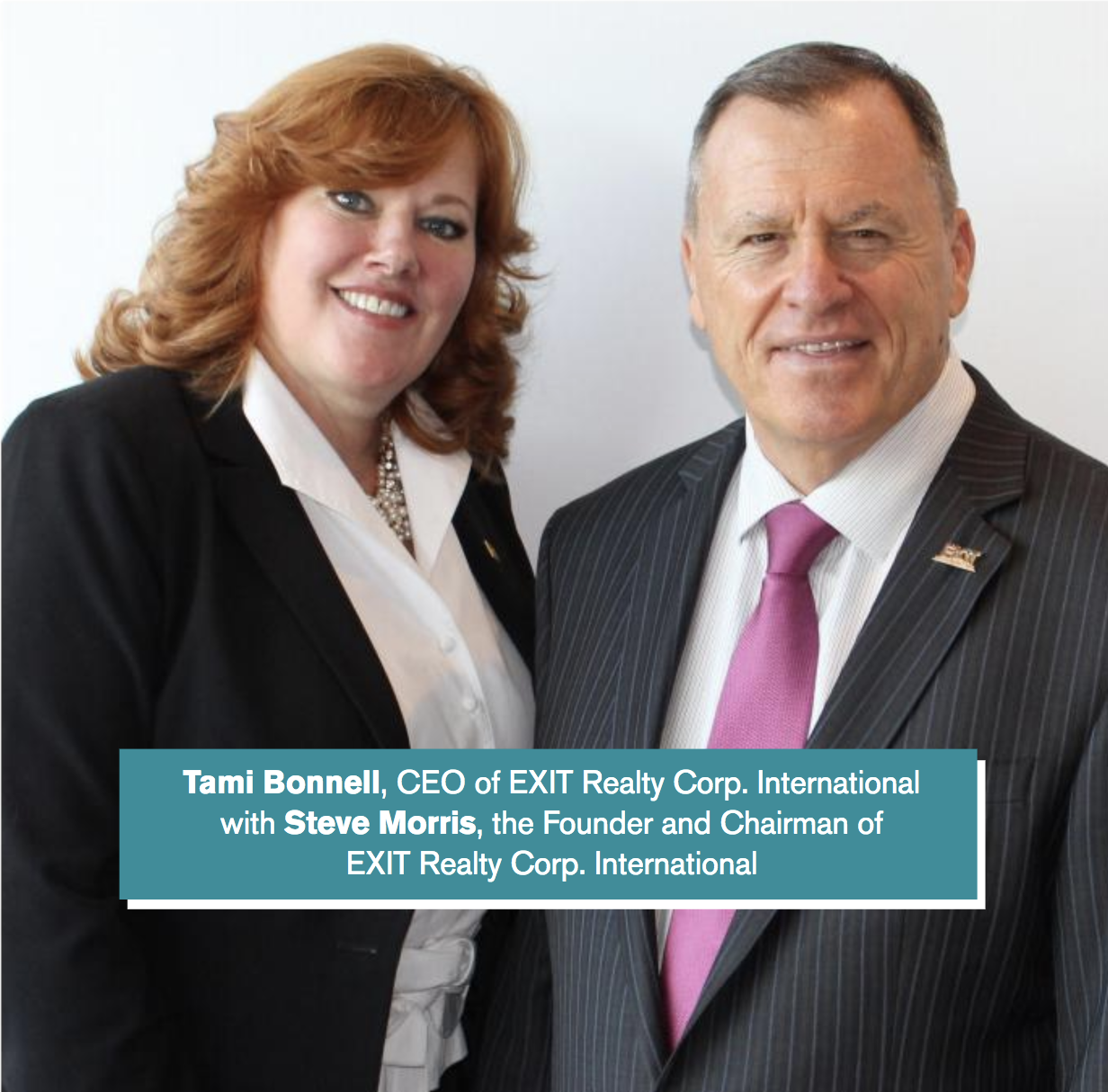 I always set up everything like an appointment. Even if that appointment is with my husband, daughter or a friend, it’s an appointment. If you are in sales or in any other business and have an appointment, you can’t make another appointment during that time. I think that you have to do that. It’s not that we don’t work a ridiculous amount of hours, because we do. It’s how you prioritize things.
I always set up everything like an appointment. Even if that appointment is with my husband, daughter or a friend, it’s an appointment. If you are in sales or in any other business and have an appointment, you can’t make another appointment during that time. I think that you have to do that. It’s not that we don’t work a ridiculous amount of hours, because we do. It’s how you prioritize things.
From a parenting standpoint, it’s the best thing I ever did because I never had to break a promise.
For me, the sanity comes in either gardening or working out. The key is to get up earlier than everybody else so you have that space. I love gardening because I think having your hands in the dirt is therapeutic.
You think on your feet, so you find yourself doing better if you work out. I think this helps you stick with something. If you’re happier, your kids are going to be happier. If you’re healthier, your kids are going to be healthier. This even applies to the people you lead, the people you’re around. If you’re grumpy all the time, you’re not going to be a good leader. It’s not tons of time; you just have to make sure you make it. For me, most of the time that means getting up earlier than everybody else.
I’ve averaged more than 100 plane rides a year for 12 years. At times, it can be difficult to take a breath and explore the place you’re visiting. I made up my mind that in 2018 I am going to learn about something or someplace new and experience it with people I work with.
You know, at the 2017 NAWRB Nexus Conference is the first time anybody’s taught me how to shop. It was fascinating for me to learn from you and I thought it was the coolest thing to have that inside knowledge to shop for yourself and have your act together out there. It was a personal thing you did for everybody; you let everyone have a part of you. That’s something that’s really special about you.
It was really cool. Most of the time when you go to events, you’re just working the whole time. You’re in your room on your computer or phone or you’re out in front of people. That was a really neat thing that should be included every time; some kind of an experience that you get to go home with.
NAWRB: You are a gift giver; you often send EXIT Realty Agents inspirational books, and you recently sent me an uplifting card and beautiful “break the glass ceiling” necklace. Have you always made it a point do kind gestures for people in your life? What do these thoughtful acts mean to you?
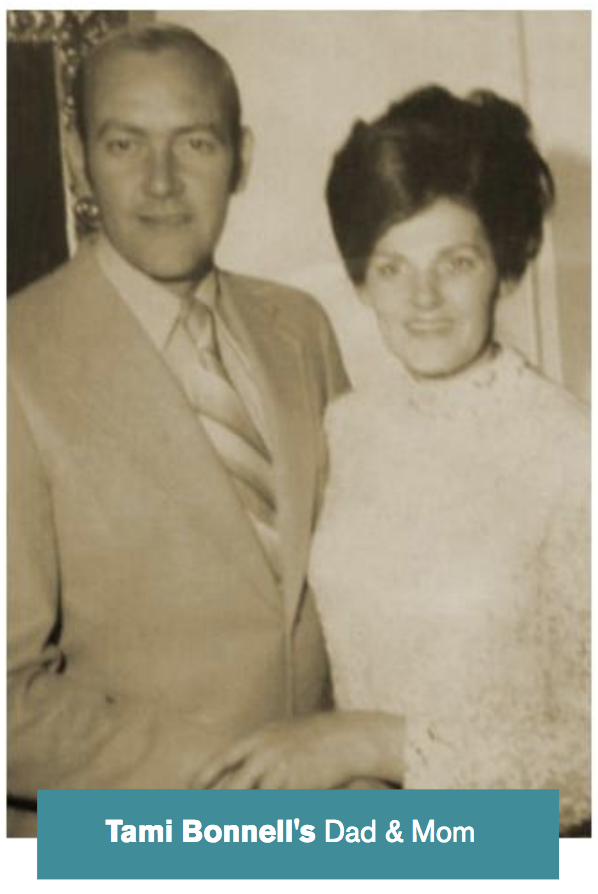 Tami Bonnell: The number one thing is that human beings matter and you have to get to know them. So often you hear that golden rule that you do unto others as you’d like to have done unto you, but your interests might be different than mine. I should be sending you something that is more personal to you. People want to matter and be heard.
Tami Bonnell: The number one thing is that human beings matter and you have to get to know them. So often you hear that golden rule that you do unto others as you’d like to have done unto you, but your interests might be different than mine. I should be sending you something that is more personal to you. People want to matter and be heard.
I love giving and I think the person that gives gets more than the person they gave it to, because it feels great to be able to give to somebody. It doesn’t matter if it’s a magazine article that you think will help their child or a gift. I gifted you a “breaking the glass ceiling” necklace because you’re helping so many women do that. That’s pretty amazing. It should definitely be recognized.
I’m a firm believer that strong women love strong women and want to see them succeed, it’s insecure people who don’t. Strong women love it. When strong women see another strong woman going somewhere they think, “That means the rest of us can too.” We all end up rooting for each other. If you know something and can share it, I think that’s a responsibility.
NAWRB: If you had to give us only three, what are the most important qualities or habits a successful leader needs to have?
Tami Bonnell: I think you should be an active listener, an avid learner, and you should love what you represent. I couldn’t sell something I didn’t believe in. I love the company that I represent; I love the people in it and I feel responsible for them. That foundation has to be built on love. I don’t think you can lead something that you don’t love.
NAWRB: Success means different things to different people. To some, it means higher bottom lines and to others, being liked and respected. You seem to masterfully balance both. Has the meaning of success changed for you throughout your career?
Tami Bonnel: Yes. When I was very young it equated to making more money. I remember being a kid and thinking, “Wow, if I could just make $30,000 that would be amazing. I’d have more than enough money to do anything.” It was always that, if I sell this much I’ll make that much.
Now, it’s much more equated to trying to help as many people succeed as humanly possible.
My perspective on success kept changing after becoming a parent and it grew and grew. Now, it’s pretty limitless. The whole entire thing is, whatever we tell people they can become, they can become. People become what we tell them they can be. If they haven’t been exposed to any of that, they don’t learn it. The money always shows up, so you don’t have to worry about that.
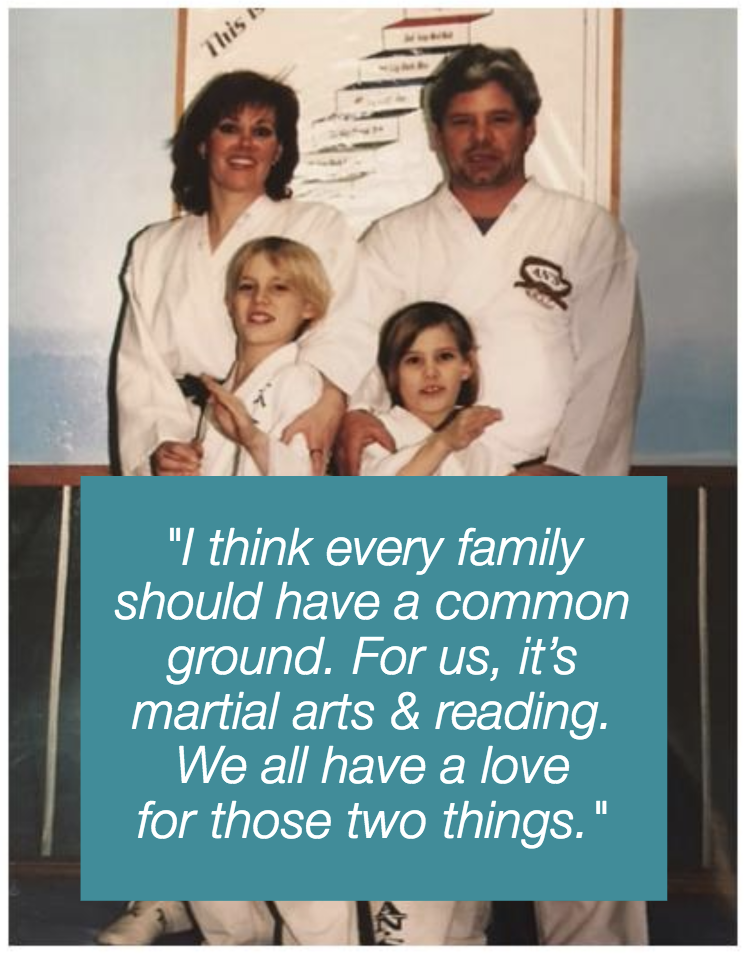 NAWRB: As a child, what did you want to be when you grew up? How did this vision change, and are those interests still present in your life today?
NAWRB: As a child, what did you want to be when you grew up? How did this vision change, and are those interests still present in your life today?
Tami Bonnell: I wanted to be a lawyer and thought I would end up going to law school. I wanted to be an advocate so that I could either help children or the elderly, people who didn’t have a voice. That was my thought.
Understanding legalese is part of my job and I do get to be an advocate. Only now, instead of going into a courtroom, I do it by showing people what they can become; I find something really good in that person and find their talent. It’s similar. I get the same value out of it, which is why I never pursued school. I’m getting the same return. It definitely feels like I’m serving the same purpose.
NAWRB: Can you tell us about the process of being chosen CEO five years ago? How do you think your life would be different if you hadn’t become CEO of EXIT Realty?
Tami Bonnell: One of the great things about our company is that everybody that’s hired for a leadership role was doing the job before they got it. What we do is recognize that internally. Everybody who has moved up has done so within the company. We’ve watched and helped them grow, and focused on pointing them in the right direction. I was already helping all of North America grow while I was the EXIT Realty President for the U.S., so CEO was the next level of growth.
The Founder and Chairman was the CEO and he wanted to become Founder and Chairman. He’s still very much in charge and involved, but from a day-to-day standpoint it’s more me. I was doing the job before and now I get to impact more people. I think that would be the biggest difference if I wasn’t CEO, I wouldn’t get to impact as many people.
My job when I go to other places, other than when I’m speaking, is to be a student. We have a lot of people that are in charge of brands who are just protecting their retirements, but that’s not leading. If you’re not growing, how are the people around you going to grow? I find, so many times, people get to up to a certain level in their career and stop. That’s what got them there, working their way up to it. If you don’t stay a student, you’re in trouble.
NAWRB: Out of 16 positions, EXIT Realty’s executive team features 10 women. What is the value of women in executive roles? Why do you think we see such an absence of women in C-suites and boardrooms across the United States?
Tami Bonnel: This is really big for me. Number one, I think women are more multi-faceted. They’ve done studies that show women are more multi-faceted and men are more singularly focused. Women have a perspective allowing them to see things from a lot more angles. Without question, that’s helped us grow considerably, but we’ve really always picked the most qualified person for the job. It wasn’t that we were going to pick a male or a female.
There are more female top producers in real estate than there are men and yet, they don’t jump up to the next role. I think there are a couple of reasons for this. Number one, a lot of people need to see that example and there aren’t as many female examples. We’ve seen a female be as high as Secretary of State, but we haven’t seen one go further. Until we see a female president in the U.S., a limited mindset and perspective will exist. We don’t see as many female CEOs and I don’t think there are as many examples for women to say, “I can see myself doing that.” I think having examples and role models, and any kind of exposure to that, is extremely helpful.
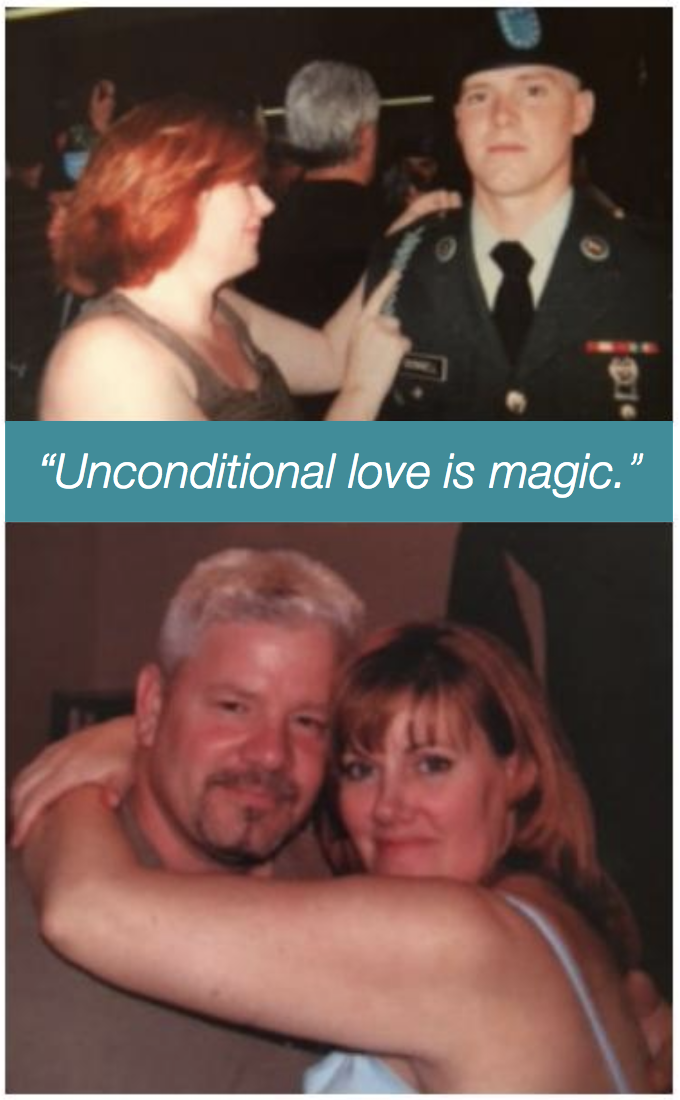 Women are more timid to jump in. I don’t know if it comes from familial roles, but they’re less likely to throw their hat in the ring. It’s a shame because you can find balance no matter what. I think it’s getting a little bit better, but things like the NDILC are going to help make this exposure much stronger.
Women are more timid to jump in. I don’t know if it comes from familial roles, but they’re less likely to throw their hat in the ring. It’s a shame because you can find balance no matter what. I think it’s getting a little bit better, but things like the NDILC are going to help make this exposure much stronger.
I got an opportunity to go out and speak to a bunch of Girl Scouts, because they have to be their own CEOs when they’re selling cookies. I volunteered when I went to Arizona. I usually ask if they can give me an opportunity to go to a school or have an impact someplace if there’s enough time. I got to speak to seven- to 12-year-old Girl Scouts who actually got a badge for being their own CEOs. When I asked those girls if they knew a female CEO who was in charge of her own business, not a single one could name a female CEO. What’s worse than that is none of their parents could either.
If they don’t have that exposure, how do they say, “That’s something I want to do, that’s something I want to be?” Even in the Congress and Senate, there are still significantly fewer women. We’re half the population so we should be half of everything. There should be that kind of representation because we have a totally different perspective.
At our company, we have people from every generation. We have people from their twenties to their seventies and everywhere in between. We actually also have a gentleman who is 88. Most of the people in leadership are in their fifties and sixties. We have the next generation that we’re training and exposing to the industry at a very young age. In their twenties and thirties they’re learning all about leadership, even if they’re just leading one initiative or a small group. They’re learning as they grow and there will be people who can jump in place if and when I or any of the other people who are in leadership positions retire. That was a really smart decision by the company.
NAWRB: What is the best part of living in Massachusetts? Would you ever trade the Northeast for another area? If so, which one?
Tami Bonnell: The best part of living in Massachusetts is my family’s there. I also love the four seasons and grew up there. I’ve lived in a couple other areas. I lived in Tennessee for four years and couldn’t wait to get back to New England. They’re really nice people, but New England feels like home.
I might get a second home somewhere. I love California, but wherever I went would have to be close to the ocean. I do think that there’s something magical about both coasts.
NAWRB: What role have martial arts played in your life? What drives your passion for and dedication to the discipline?
Tami Bonnell: It’s helped every single area of my life. People cross over the threshold into the school and do jang to be better. It’s very similar to our company. It’s that whole entire mind and body connection. You think better on your feet and every time that I would compete, I would return with better business ideas and better ideas for everything.
We took our family to martial arts classes, for almost 20 years, three times a week. It didn’t matter whether it was 6 o’clock in the morning or 8 o’clock at night. We kept that commitment three times a week. The uninterrupted time in the car on the way there and back to be able to talk and the fact that everybody was good at something different so we all got to shine in certain areas was great.
The foundation that it created for my children was phenomenal. My oldest son William got his first degree black belt at 13, Shane at 10, and Maegan at 9. They would kick the back of my seat on the way there and say, “I can’t believe you’re making us do this.” I’d say, “You made a deal and a commitment that you’d go all the way to black belt and I’m going to hold you to it.”
I’d wake up in the middle of the night wondering if I was doing the right thing or pushing them too hard. I’ll never forget William came into my room at 5 o’clock in the morning after getting his black belt and woke me up. I thought he was sick or had a head injury, that’s usually why you get woken up in the middle of the night. He said, “Mom, I haven’t even gone to sleep yet. I feel so great about myself. I know that I can accomplish anything.” Parents only need to hear that once in their lifetime to feel like a million bucks.
It was worth them sticking with it. I know they’re in control and it’s given them a really good foundation. I think every family should have a common ground. For us, it’s martial arts and reading. We all have a love for those two things. It’s a great way to stay connected as a family.
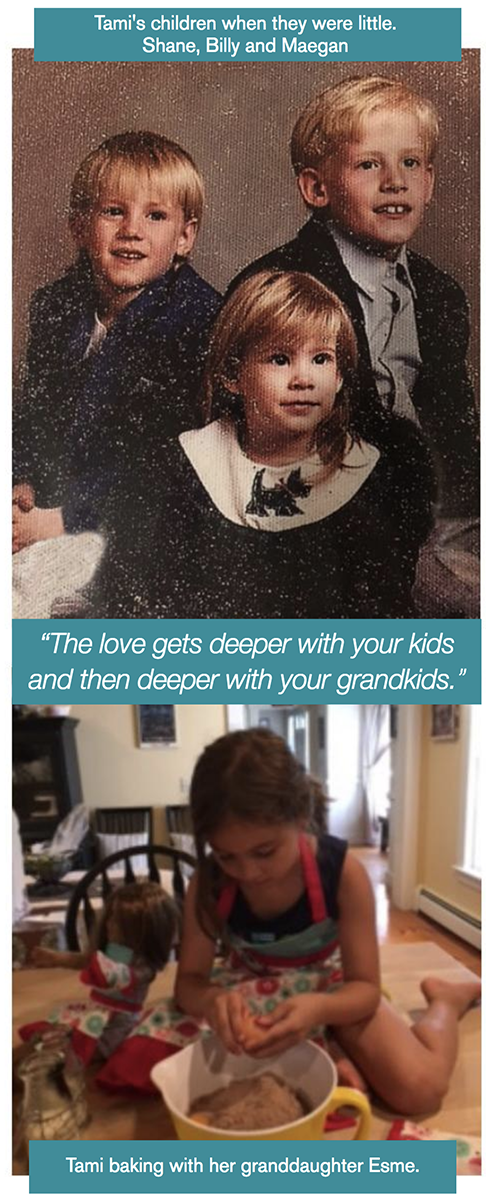 You know that you’re giving them something that they can take into every area of their life. It’s a way of life and a discipline. My husband is a master and we both still referee and coach. I don’t have the time that he does, but he does it on a very large scale.
You know that you’re giving them something that they can take into every area of their life. It’s a way of life and a discipline. My husband is a master and we both still referee and coach. I don’t have the time that he does, but he does it on a very large scale.
That whole body and mind connection, and being grounded all the time, is a really good thing. You know what’s funny? I think they started because of The Karate Kid. They wanted to be as cool as Mr. Miyagi.
NAWRB: As a CEO responsible for thousands of agents around the country, how do you stay focused on the importance of each individual employee? What do companies lose when they allow themselves to see employees as mere numbers?
Tami Bonnell: First and foremost, we did this deliberately. We decided that we would be the human behind the transaction, the human behind the device, that it would always be the person that would matter most. Steve said to me, “EXIT will show you you, but I believe EXIT will show you a better you. Our whole entire philosophy is making every person better, finding out what their dreams are and helping them get to the point where they’re living deliberately. The human will always be important.
We’re also a privately-held company. We aren’t publicly traded; there isn’t a person pulling the apron strings treating me like a marionette who can come back to me and say, “You have to cut this many jobs because we have to cut this off the bottom line.” We didn’t let go one single person during the recession out of corporate headquarters, we decided the human element is too valuable, our people are too valuable. Even if we skipped paychecks, we held on to absolutely everybody to make sure every single person knew that they were valued. I think that’s really amazing. There are an awful lot of franchises that are publicly traded and it is all about dollars and cents for them, they haven’t really focused on the person.
We built this entire company on the foundation of love and we’ll hang on to loyalty, I believe, a whole lot better than other companies. It makes us work regardless of what’s going on in the market.
We actually decided even during the recession that the buck stopped there and leadership took a hit in pay before anybody else. We should always put our money where our mouth is. You have to be willing to live what you preach.
NAWRB: What is the biggest difference between being a parent and grandparent? What have been your favorite parts of those two phases of your life?
Tami Bonnell: The difference between being a parent and a grandparent is the responsibility part. As a parent, you’re so busy trying to make a living, you want to spend time with them, you love them to pieces, you’ve got to feed them and do all these things; there’s so much responsibility that you don’t get the same opportunity to relax and just be.
As a grandparent, you get to love them to pieces and send them home. You get to spend all the time on unconditional love. You’re not the disciplinarian or any of those other things. Truthfully, if you think you love your child, wait until you love them through their child. You love your children so much more when they have their own children. It’s not that you love them more, but the love is deeper and richer. The love gets deeper with your kids and then deeper with your grandkids.
I think the responsibility on your shoulders is the biggest difference. As far as what phases I liked? Every single one. I liked it when they were obnoxious teenagers and they were walking hormones with shoes. I liked when they were little and everything was brand new. I loved the terrible twos, I thought it was hilarious. I love seeing it now with grandkids. Human beings are magical. I think human potential is sheer magic.
I don’t even think I have the right words. It’s not possible to feel a deeper love than you feel as a parent or a grandparent. I don’t think that possibility exists. When you see their potential and what they can do, and you hang on to just one small part of them, it’s ridiculous. Unconditional love is magic.

 Login
Login

